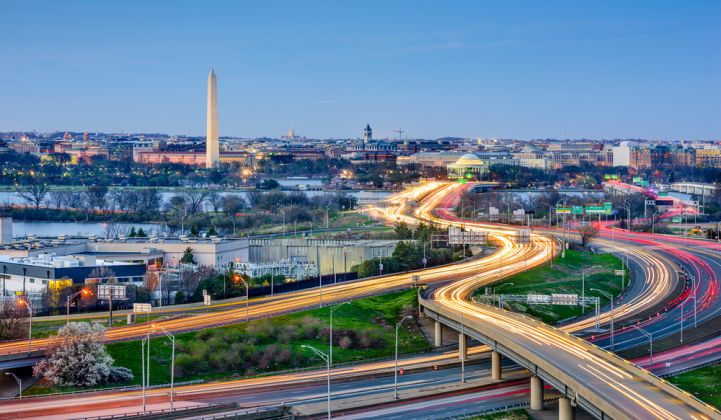After nearly two years of negotiations, the $6.8 billion merger between Exelon and Pepco is teetering on the brink of failure.
On February 26, the District of Columbia Public Service Commission rejected a merger settlement in a 2-1 vote, but kept open the possibility of approval by introducing an alternative proposal. To pass, all settling parties had to agree to the plan by March 11.
The PSC proposal laid out four conditions, including a motion to defer the allocation of $25.6 million in customer rate relief to Pepco’s next rate case. The change was designed to address PSC concerns that the credit did not apply to non-residential ratepayers, and would exacerbate an existing imbalance between commercial taxpayers and D.C. residents.
Observers believed the conditions were palatable, but support for the deal quickly crumbled. On March 1, the D.C. District Attorney and the Office of the People’s Counsel withdrew their backing. D.C. Mayor Muriel Bowser dropped her support shortly thereafter, despite having brokered a $78 million benefits package as part of the merger settlement last fall.
“We pulled everyone together to negotiate an agreement that was a great deal for D.C. residents,” said Bowser, after the PSC's rejection. “The PSC’s counterproposal guts much-needed protections against rate increases for D.C. residents and assistance for low-income D.C. ratepayers.”
City officials specifically took issue with the PSC’s proposal to allocate $25.6 million in rate relief during Pepco’s next rate case. They opposed turning the allocation over to regulatory proceeding, which would no longer guarantee that residential customers were protected from rate increases.
In an eleventh-hour effort to save the merger, Exelon and Pepco submitted another alternative on Monday that seeks to address the concerns of other settling parties.
The new offer reallocates a portion of the benefits package by placing $45.6 million into a customer investment fund -- the move would preserve $25.6 million in residential rate credits from the original merger settlement, and free up $20 million for the PSC to allocate at its discretion.
The $20 million would come from a newly created subaccount for grid modernization pilot projects in the District, detailed in the Commission's Feb. 26 order.
“This alternative proposal provides flexibility in determining a path forward for the merger, addressing the guidance the Commission provided in its order and the desire to protect District residents, including those most in need, from rate increases,” said Exelon president and CEO Chris Crane, in a statement. “And it maintains the full $78 million in benefits for the District and Pepco customers agreed to in the original settlement.”
In addition to the new proposal, the utilities said they would also accept the terms of the original settlement agreement designed with the help of the mayor or the terms laid out in the PSC order last month.
“The Commission and the settling parties are in agreement that the value of the overall benefits we have committed to the District is appropriate -- it’s essentially a question of how those benefits are allocated for the District,” said Joe Rigby, chairman, president and CEO of Pepco Holdings. “To safeguard these benefits for the District and its residents, we are putting before the Commission several options that will allow the merger to move forward.”
The utilities asked the PSC for a decision on the filing by April 7.
Chair Betty Ann Kane has strongly opposed the merger since the PSC first rejected it last August and is unlikely to support the latest proposal. Commissioner Willie Phillips has already voted in support of the deal, and analysts believe Commissioner Joanne Doddy Fort could be won over.
Regulators in New Jersey, Delaware, Maryland and Virginia have already approved the merger. The D.C. PSC vote is the final hurdle.
But chances of approval seem low unless city officials get back on board. Mayor Bowser’s office did not immediately offer a comment, and other stakeholders have said they're reviewing the deal.
Meanwhile, opponents have poured on criticism of the latest proposal, noting that it doesn’t offer D.C. any new funds -- it simply moves them around.
The PSC shouldn’t allow Exelon to “rearrange deck chairs on the Titanic,” said Anya Schoolman, director of D.C. Solar United Neighborhoods.
Environmentalists have strongly opposed the merger, claiming it would undermine efforts to bring more clean energy to the District.
By shifting $20 million for grid modernization efforts to a pot of money for ratepayers, Exelon is attempting to pit renewable energy advocates against ratepayer advocates, said Schoolman. "But in D.C., we built the consensus that renewable energy and low-income affordability are interconnected, not two opposing issues," she added. "This third option is a non-starter."
"District regulators have already ruled twice that the merger between Exelon and Pepco is not in the public interest," said Allison Fisher, spokesperson for Public Citizen's energy program. "This latest attempt to resuscitate the deal should result in the same finding. It’s time for Exelon to get the message -- once and for all -- that D.C. is not for sale."



